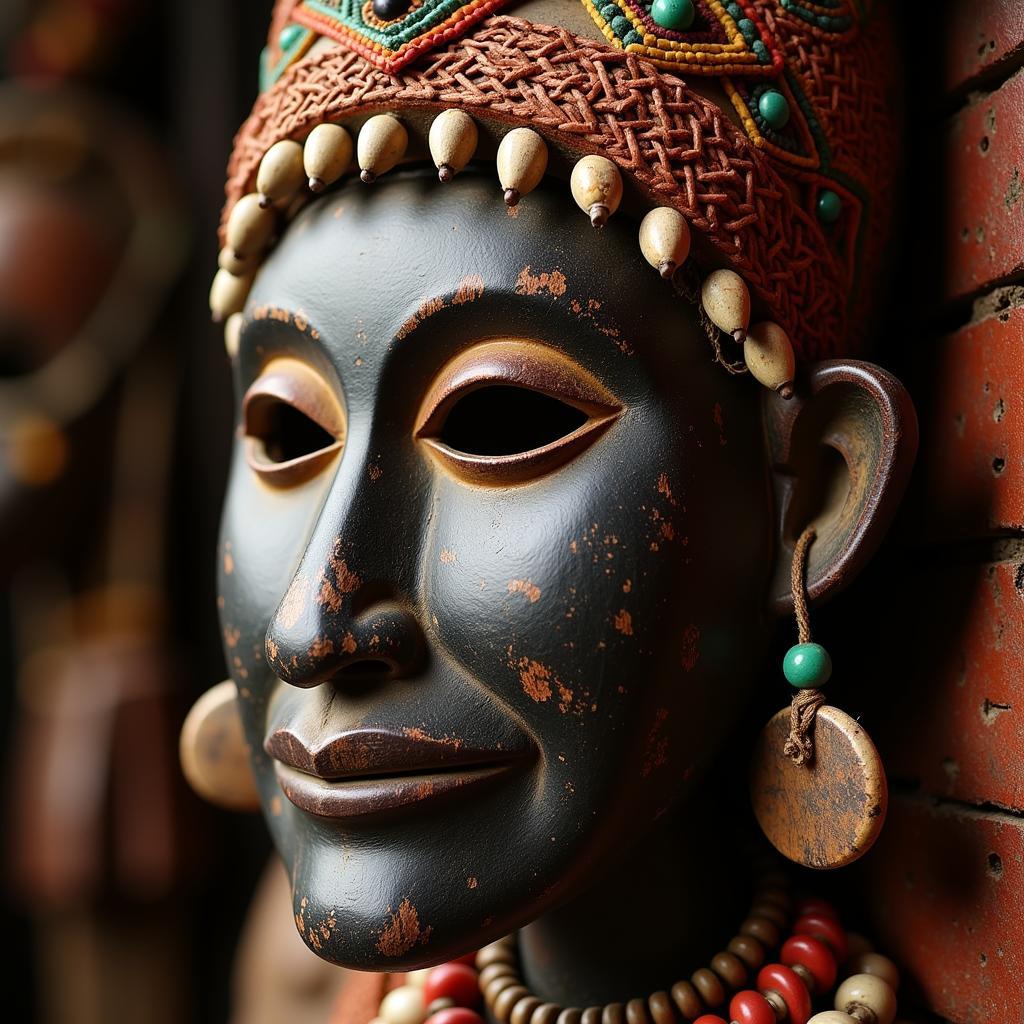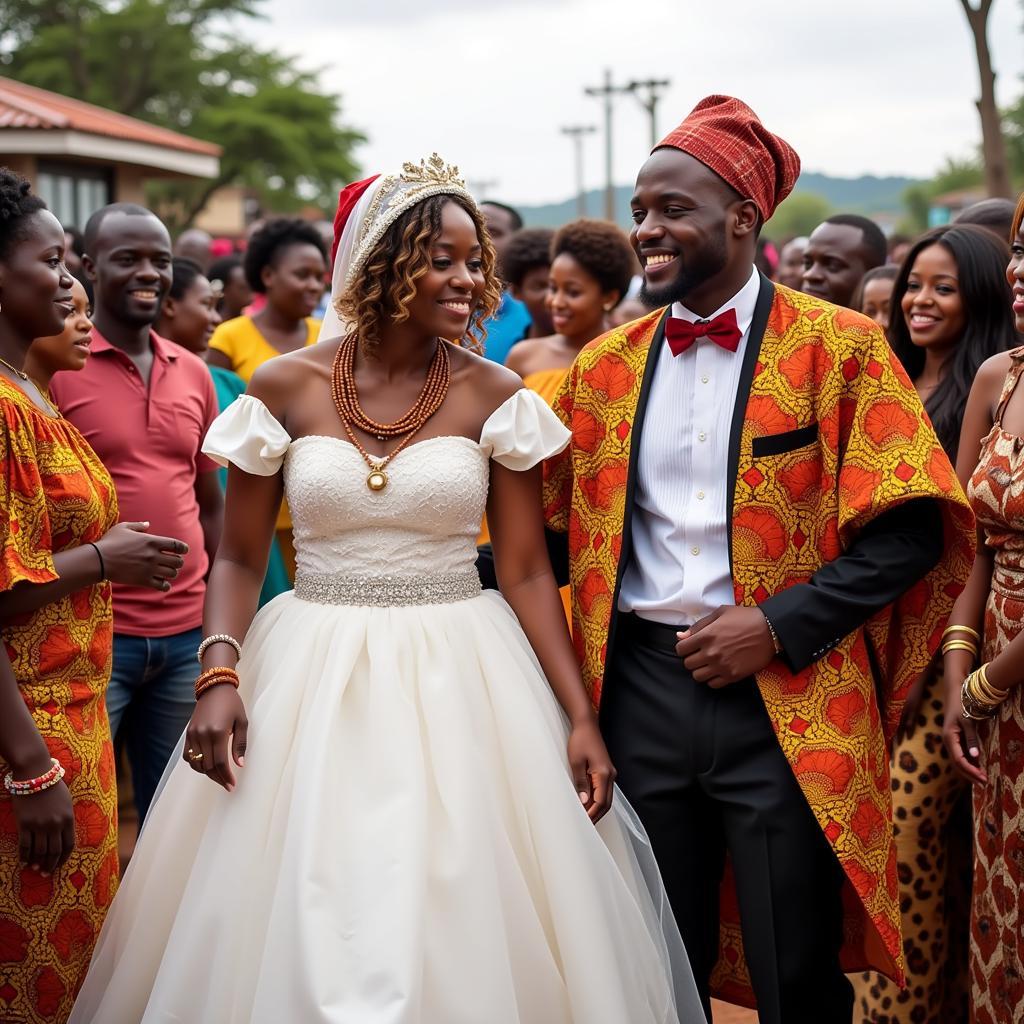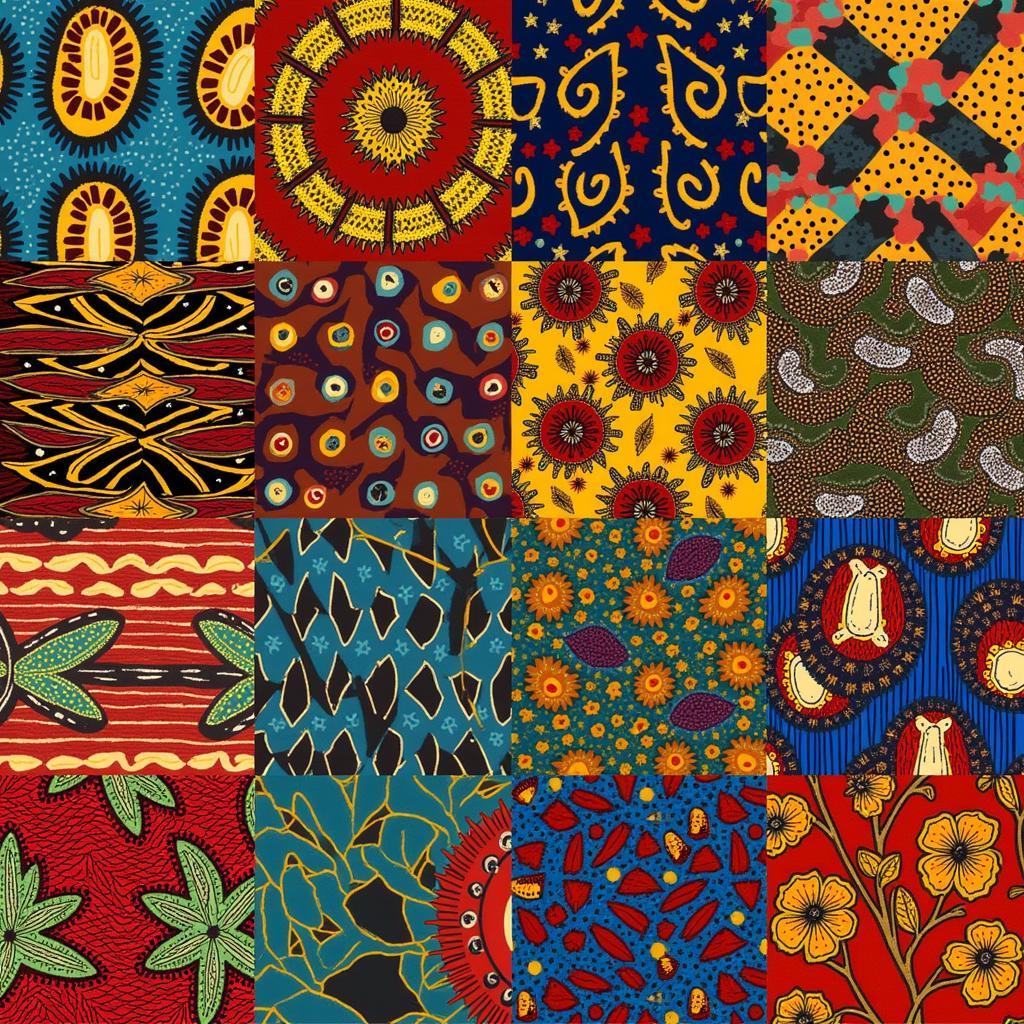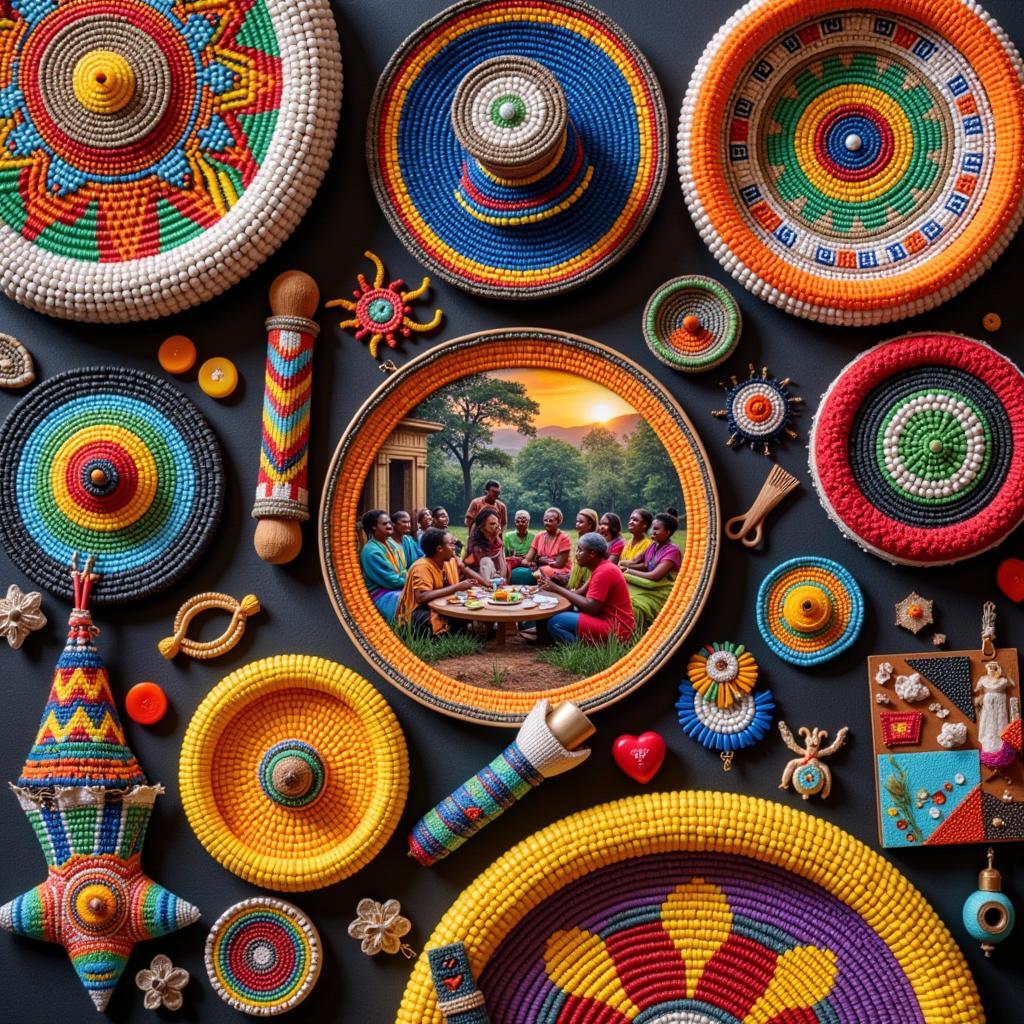African Art and Culture: A Journey of Creativity and Heritage
Africa, a continent of immense diversity, pulsates with a vibrant tapestry of art and culture. From the intricate beadwork of the Maasai to the elaborate masks of the Yoruba, African Art And Culture have captivated the world for centuries, offering a glimpse into the soul of its people and their unique understanding of the world.
 African Mask Sculpture: A testament to Tribal Art
African Mask Sculpture: A testament to Tribal Art
Unveiling the Depths: What is African Art?
African art is not a monolithic entity but rather a rich mosaic of styles, materials, and techniques that vary significantly across different regions, ethnicities, and historical periods. It encompasses a vast spectrum of artistic expressions, including:
- Sculpture: Perhaps the most widely recognized form of African art, sculpture encompasses a diverse range of materials, from wood and bronze to ivory and terracotta. These sculptures often depict ancestors, deities, or important figures, playing a crucial role in religious rituals and social ceremonies.
- Masking Traditions: Masks hold immense cultural and spiritual significance in many African societies, serving as conduits to the spirit world. Used in dances, rituals, and initiations, masks are often adorned with elaborate carvings, vibrant colors, and symbolic motifs.
- Textiles and Beadwork: From the intricate Kente cloth of Ghana to the colorful beadwork of the Maasai, African textiles and beadwork are renowned for their vibrancy, craftsmanship, and symbolic language. These creations often denote social status, clan affiliation, or personal identity.
- Music and Dance: Music and dance are integral aspects of African culture, serving as powerful forms of expression, storytelling, and social cohesion. From the polyrhythmic drumming of West Africa to the energetic dances of East Africa, each region boasts its unique musical traditions and dance forms.
The Essence of Expression: Understanding African Culture
African culture is deeply rooted in a strong sense of community, spirituality, and oral tradition. It is characterized by a profound respect for ancestors, a strong connection to nature, and a vibrant artistic heritage that permeates all aspects of life. Key elements of African culture include:
- Oral Traditions: Storytelling, proverbs, and songs play a vital role in transmitting knowledge, history, and cultural values across generations.
- Community and Family: African societies place a strong emphasis on community and family, with extended family structures and communal living often playing a central role.
- Spirituality and Ancestor Veneration: Religion and spirituality are deeply intertwined with everyday life in many African cultures. Ancestor veneration is a common practice, with ancestors believed to influence the lives of the living.
Exploring the Connections: African Art and its Cultural Significance
African art is not merely aesthetically pleasing but also deeply embedded with cultural meaning and symbolism. It serves as a visual language, communicating beliefs, values, and social norms.
- Functional Art: Many African art forms are not created solely for aesthetic purposes but also serve practical functions in daily life. For example, masks are used in rituals, sculptures serve as reliquaries, and textiles convey social status.
- Symbolism and Meaning: African art is replete with symbols and motifs that hold specific cultural meanings. Colors, animals, and geometric patterns often carry symbolic weight, conveying messages about spirituality, social order, or the natural world.
- Art as a Reflection of Society: African art provides valuable insights into the social, political, and religious structures of different communities. It reflects the beliefs, values, and concerns of the people, offering a window into their worldview.
 Celebrating Heritage: A Traditional African Wedding
Celebrating Heritage: A Traditional African Wedding
Conclusion: The Enduring Legacy of African Art and Culture
African art and culture offer a rich tapestry of creativity, heritage, and human expression. By understanding the symbolism, techniques, and cultural contexts behind these art forms, we gain a deeper appreciation for the diverse cultures of the continent. African art continues to inspire artists, designers, and art enthusiasts worldwide, serving as a testament to the enduring power of human creativity and the richness of African heritage.



